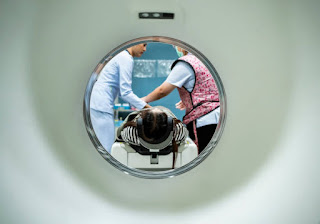Maximizing the Benefits of Oncological Screening in Riyadh
Oncological screening plays a pivotal role in early cancer detection, offering significant advantages in terms of treatment outcomes and survival rates. In Riyadh, where healthcare advancements are continually evolving, understanding the benefits of oncological screening can empower individuals to take proactive steps toward maintaining their health. This blog explores how maximizing the benefits of oncological screening in Riyadh(الكشف عن الأورام بالرياض) can lead to a healthier, more informed lifestyle.
Understanding Oncological Screening
Oncological screening involves a series of tests and evaluations designed to detect cancer before symptoms arise. The primary goal is to identify cancers at an early stage when they are most treatable. Here’s an overview of why oncological screening is crucial:
Early Detection and Treatment
The foremost benefit of oncological screening in Riyadh is the ability to detect cancer early. Early detection often leads to:
- More Effective Treatment: Cancer caught in its initial stages is generally easier to treat, with more options available.
- Improved Survival Rates: Early treatment typically results in higher survival rates and better overall outcomes.
- Reduced Treatment Complexity: Early-stage cancers often require less aggressive treatments compared to advanced stages.
Tailored Screening Plans
Screening programs can be customized based on individual risk factors, such as age, family history, and lifestyle. This tailored approach ensures that each person receives the most appropriate screening tests for their specific needs.
Benefits of Oncological Screening in Riyadh
The healthcare landscape in Riyadh is well-equipped to support comprehensive oncological screening. Here are some key benefits of participating in these screening programs:
Access to Advanced Technologies
Riyadh boasts state-of-the-art medical facilities that offer advanced technologies for oncological screening. These include:
- High-Resolution Imaging: Technologies such as MRI and CT scans provide detailed images, enhancing the accuracy of cancer detection.
- Genetic Testing: Some screenings include genetic assessments to identify hereditary cancer risks.
Personalized Care and Follow-Up
Screening programs in Riyadh often include personalized care plans and follow-up services:
- Customized Health Plans: Based on screening results, healthcare providers can develop personalized treatment or monitoring plans.
- Ongoing Monitoring: Regular follow-ups help ensure that any potential issues are addressed promptly, minimizing the risk of progression.
Enhancing Public Awareness
Riyadh’s healthcare sector actively promotes awareness about the importance of oncological screening. This includes:
- Educational Campaigns: Public education campaigns help increase awareness about cancer risks and the benefits of early detection.
- Community Events: Health fairs and seminars provide valuable information and facilitate access to screening services.
Types of Oncological Screenings Available
Several types of oncological screenings are available, each targeting different types of cancer. Here’s a brief overview of some common screenings:
Mammography
Mammography is used to screen for breast cancer and involves:
- Low-Dose X-Rays: Detects abnormalities in breast tissue that may indicate cancer.
- Routine Screenings: Recommended for women over 40 or those with a family history of breast cancer.
Colonoscopy
Colonoscopy is a screening for colorectal cancer and includes:
- Direct Visualization: Allows for direct inspection of the colon and rectum.
- Polyp Removal: Abnormal growths or polyps can be removed during the procedure, potentially preventing cancer.
Pap Smear
Pap smears are used to screen for cervical cancer by:
- Cell Analysis: Examining cells from the cervix to detect any pre-cancerous changes.
- Routine Testing: Recommended for women starting at age 21, with frequency based on results and age.
Prostate-Specific Antigen (PSA) Test
The PSA test screens for prostate cancer by:
- Blood Test: Measures the level of PSA in the blood, which can be elevated in the presence of prostate cancer.
- Age Consideration: Typically recommended for men over 50 or those with a family history of prostate cancer.
How to Maximize the Benefits of Oncological Screening in Riyadh
To fully benefit from oncological screening in Riyadh, consider the following strategies:
Stay Informed About Screening Guidelines
Keeping up-to-date with the latest screening guidelines ensures that you are aware of when and which screenings are appropriate for you. Guidelines can vary based on:
- Age and Gender: Different age groups and genders have specific screening recommendations.
- Family History: Personal and family medical histories influence screening needs.
Schedule Regular Screenings
Adhering to a regular screening schedule is vital for early detection. Regular appointments ensure that:
- Any Changes Are Noticed: Early signs of cancer are detected and addressed promptly.
- Consistency: Regular screenings maintain continuity in health monitoring.
Discuss Risk Factors with Healthcare Providers
Engage in discussions with healthcare providers about your risk factors, including:
- Family History: Family history of cancer may necessitate earlier or more frequent screenings.
- Lifestyle Factors: Factors such as smoking or diet can influence screening recommendations.
Addressing Common Concerns
Many individuals have concerns about oncological screenings. Here’s how to address them:
Screening Accuracy
While no test is perfect, the accuracy of oncological screenings is continually improving. Technologies and methods are:
- Refined: Advanced technologies enhance detection accuracy.
- Validated: Regular reviews and updates ensure reliability.
Cost and Accessibility
In Riyadh, there are options to make screening more accessible:
- Insurance Coverage: Many health insurance plans cover oncological screenings.
- Public Health Programs: Some government programs provide free or low-cost screenings.
Conclusion
Maximizing the benefits of oncological screening in Riyadh(الكشف عن الأورام بالرياض) involves understanding its importance, accessing advanced technologies, and adhering to screening guidelines. By staying informed and proactive, individuals can enhance their chances of early cancer detection and significantly improve their overall health outcomes. Embrace the opportunities provided by Riyadh’s healthcare sector and take charge of your health through effective oncological screening.

Comments
Post a Comment